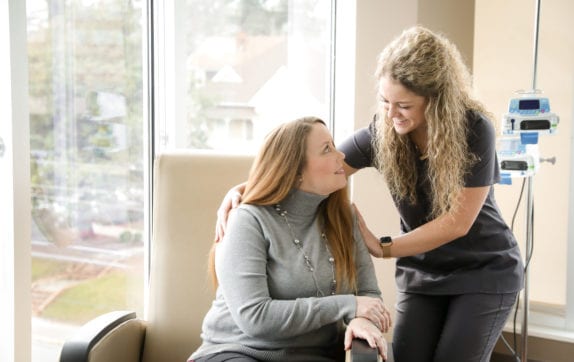


Does Medicare Cover Second (and Third) Opinions?
Medicare Part B helps pay for a second (or third) opinion and related tests, just as it helps pay for other services that are medically necessary. If you have Part B and Original Medicare:
- Medicare pays 80% of the Medicare-approved amount.
- Your share is usually 20% of the Medicare-approved amount after you pay your yearly Part B deductible.
If you’re in a Medicare Advantage Plan, you have the right to get a second opinion. If the first two opinions are different, your plan will help pay for a third opinion. Even though you have the right to get a second opinion, keep these things in mind:
- Some plans will only help pay for a second opinion if you have a referral (a written request) from your primary care doctor.
- Some plans will only help pay for a second opinion from a doctor who’s in your plan’s provider network.
Central Georgia Cancer Care accepts Medicare for second opinions. To make sure your second opinion surgeon, radiation oncologist, or specialist takes Medicare:
- Visit Medicare.gov to find doctors who accept Medicare.
- Call 1-800-MEDICARE (1-800-633-4227). TTY users can call 1-877-486-2048. Ask for information about doctors who accept Medicare.
Does Medicaid Pay for Second Opinions?
If you have Medicaid, it might also pay for you to get a second opinion, especially before surgery. To find out, call your Medicaid office. You can get the phone number by visiting Medicare.gov/contacts or by calling 1-800-MEDICARE (1-800-633-4227). TTY users can call 1-877-486-2048.
Do Insurance Companies Pay for Second Opinions?
Many insurance companies pay for second opinions, but you will need to check with your insurance provider to see if you’re covered.
When Can a Second Opinion Be Important?
- If you have a rare or unusual cancer
- If you feel uncomfortable with your doctor, the diagnosis, or if you need confirmation
- If your health insurance requires it
- If the treatment offered has side effects or risks that you find disconcerting
- If the treatment options will result in unacceptable or unreasonable demands on your life and your family
- If your doctor’s treatment goals are different from your own
- If your cancer is not responding to your current treatment.
Do I Have Time for a Second Opinion?
Treatment decisions should be made once you have learned all you can about your diagnosis, prognosis, and available treatment options. This process can take some time. In a few cancers, there are treatment decisions that must be made right away. Your doctor will advise you about the urgency of your cancer treatment.
““Absolutely love Dr. Moore! He is so down to earth and kind-hearted. He always answers all our questions in a way we can understand. It has been a blessing finding him. I wish more doctors were like Dr. Moore.” – Warner Robins patient

